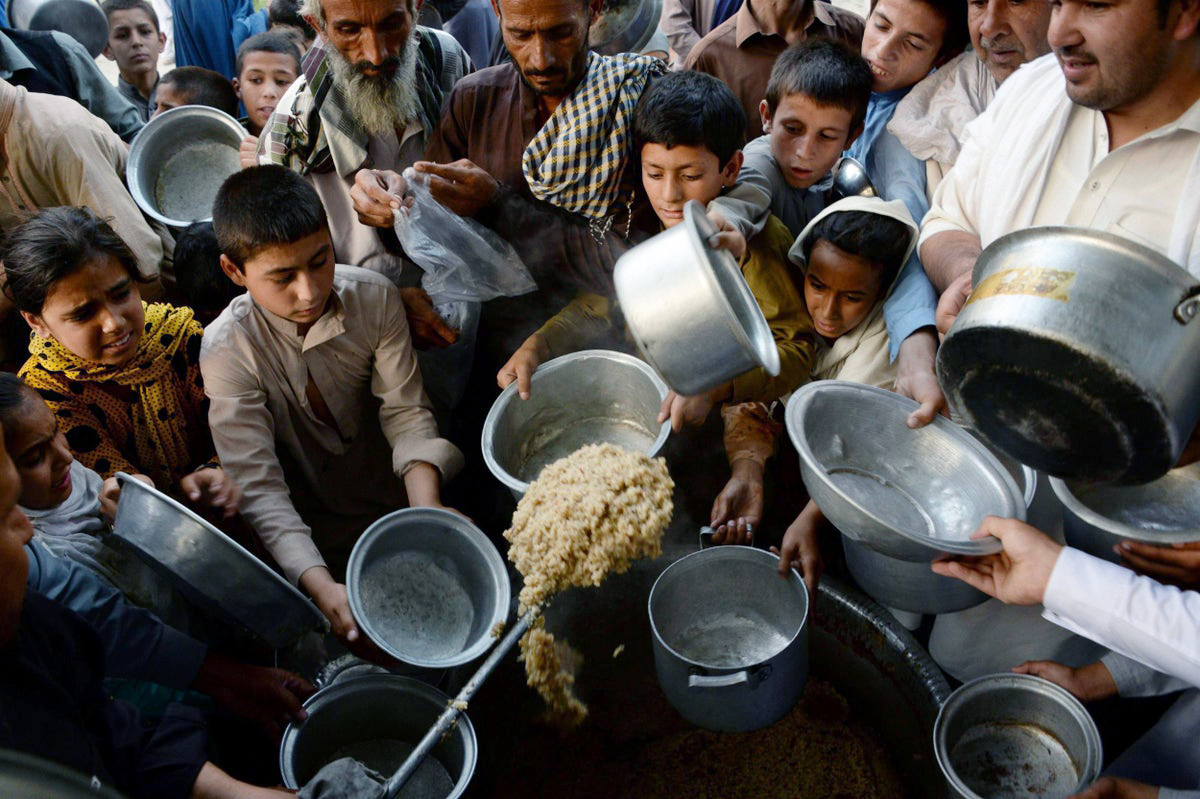The people of Afghanistan are sick of conflict and eager to live in peace, but their hopes for tranquillity are withering in the face of the grotesque reality thrust upon them by a conspiracy of circumstances. Over two months after they took Kabul, the Taliban seem no closer to getting on top of the country’s problems.
The militant group that remained invincible on the battlefield remains mired in negotiations on the foreign front and dither- ing in domestic affairs. Meanwhile, Islamic State in Khorasan Province (ISKP) fighters have gone kinetic, claim- ing attacks after suicide attack. With winter just around the corner and the economy shattered, hunger is proliferating and beggary and crime are on the upswing.
The war between the world and the Taliban ended after the complete withdrawal of the US led foreign troops from Afghanistan. There is no more political or military resistance to the Taliban in the country. They control the country from East to the West and South to the North.
The resistance group or National Resistance Front of Panjshir valley is no more in the region. The Valley that defied the Soviet juggernaut and then Taliban’s original rise to power is now ruled by the Taliban.
But the security threat from Islamic State in Khorasan Province (ISKP) is growing alarmingly all around the country. The group has claimed several deadly attacks since the Taliban took over Kabul.
Among the attacks for which ISKP claimed responsibility are Kabul airport bombings, a bomb attack on a memorial ceremony of the mother of the acting deputy information minister Zabihullah Mujahid, and also the October 8 suicide attack on the Shi’ite Hazara Muslims community in a Friday’s prayer in a mosque in Saeedabad, Kunduz.
There are reports of clashes between the Taliban forces and ISKP militants in the eastern Kunar province, Nangarhar (said to be a base for the group), Khost, Zabul, and Kabul. However, the Taliban do not see it as a serious threat and claim they can eliminate the group.
On the day ISKP claimed the Kunduz suicide attack targeting the Shi’te Hazara community, the Taliban governor for Khost Mawlawi Nabi Omari claimed the arrest of 7-8 members of the ISKP in the province, and killing of many others in a clash.
The US had offered to jointly counter the ISKP in Afghanistan, but the Taliban turned down the offer, claiming that its fighters could take on the ISKP alone. Some of the Taliban fighters were reportedly killed in sting operations by the ISKP, and some were kidnapped and tortured to death.
The major challenge on the hands of the Taliban is securing international recogni- tion for their government, without which the country can neither engage in interna- tional trade nor receive any aid. The world is watching Kabul closely, and no state has recognized the new government of the Taliban because the international commu- nity is not satisfied with the current Taliban-only political dispensation.
Equally worrisome for the world are the Taliban moves to put restrictions on women, keep them out of the cabinet and government, and close the doors of educa- tional institutions to girls beyond the sixth grade. Small wonder no breakthrough has been achieved in the weeks of negotiations between the Taliban and the representatives of the international community.
A delegation led by the Taliban Acting Foreign Minister Amir Khan Muttaqi and including the Acting Information Minister Mullah Khairullah Khairkhwah and senior leader Mawlawi Shahab Ud Din Dilawar left for Doha, Qatar on 8 October.
Meanwhile, Russia has confirmed that the Taliban will take part in a round of negotia- tions scheduled for 20 October in Moscow to discuss the prevailing situation in Afghanistan. The conference is likely to be attended by the representatives of China, Pakistan, Iran and India. However, the Taliban has not formally responded to the call, whether to attend it or not.
The government infrastructure is only partly functional. The Taliban chief of the Passport Authority Mawlawi Alam Gul Haqqani announced in a news conference that the government would release salaries of the last 3 month to all the government employees soon. “I am going to share this good news with the employees that the cabinet has given approval to pay the salaries of the last 3 months.”
Overland Afghan trade remains stymied by closure of border crossings with neighbour- ing countries. The Chaman-Spin Boldak crossing has been shut for trade and pedes- trians recently.
The Taliban are working to control the street crimes like robbery, theft, snatching, and kidnapping for ransom, but so far they have not succeeded. The Taliban police have been arresting the criminals, but there are no trials as the court system is yet to be made functional in the country.
Earlier, the Taliban came under severe criticism over the public executions of the alleged criminals without due process. In the western capital city Herat, the bodies of four alleged kidnappers were recently hanged in the square from a crane after they were shot dead in an alleged encounter.
The Taliban defended the act as sending the message to all the criminals, kidnappers and outlaws to avoid crimes, or be ready to face the same punishments.
In background interviews, many of the Taliban officials in the police and other law enforcement agencies are supportive of the public executions of the criminals, but some say the courts should decide the fate of the alleged criminals.
“Our job is to ensure law and order in the country,” one police officer stated. “We arrest the alleged criminals, investigate them, and hand them over to the police headquarters for further investigations. Then we should produce the accused criminals before the court of law, and it is for the court to release them or punish them”.
It is still unclear if the Taliban would bring back the system they enforced in their first stint in power or move forward with some reforms.










